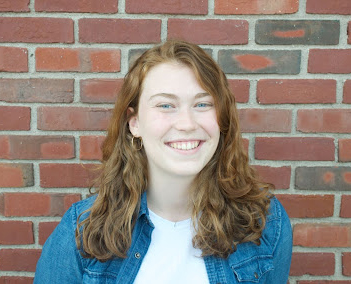This Q&A highlight features Kiersten Campbell, a Finalist in the 2021 CRA Outstanding Undergraduate Researchers award program. Kiersten graduated from Williams College in 2021 with a double major in Computer Science and Biology and is now in a post-baccalaureate research position. This interview has been edited for length and clarity.
How did you find your research opportunities?
Williams College is a small, liberal arts college, so professors and students generally get to know each other well. I found one of my research experiences by simply running into my professor, Dr. Claire Ting, on campus one summer day. A friendly conversation about work turned into a more formal discussion of research interests the following week, and I joined her lab the following semester!
What project did you work on with Dr. Ting, and what was that experience like?
Marine microbes play a critical role in global carbon and energy cycles, allowing them to have a sizable impact on Earth’s ecosystem despite their small size. Taking a bioinformatics approach, we conducted a comparative genomics study amongst key members of the oceanic microbial community to gain insight on their diverse survival strategies.
I worked exclusively with the principal investigator of the lab, Dr. Ting, and that intimate research setting helped me build confidence in discussing my work and proposing new project directions. The project turned into my senior thesis, and I spent the summer before my senior year as a full-time research student. The research culminated in writing my senior thesis and presenting that work to my peers. Dr. Ting and I are also drafting a manuscript for publication in an academic journal.
You mentioned you had another research experience. Can you tell us more about that?
Yes, the summer that I ran into Dr. Ting, I was part of the inception of the SWELL Entry-Level Learning Language (SWELL) project, led by Dr. Daniel Barowy. The SWELL project studies ProDirect manipulation, an educational style of coding interface in which changing the output of a program causes changes to the code in real time. Our team of undergraduates developed the new SWELL programming language with simplified syntax and ran Hour of Code workshops in local middle school classrooms. The students learned so much in just a one-hour workshop! The SWELL project also led to a published manuscript and a presentation at the SPLASH 2019 conference in Athens, which was an amazing experience.
What challenges did you face in research? What did you learn from them?
I think my biggest challenge at first was realizing how much prep work goes into a project before moving into the more tangible processes, the “doing” of research. The first weeks involve getting up to speed on relevant literature and learning new skills, like a new programming language or version control with Git.
Coming from a First Generation background, I struggled with imposter syndrome throughout my college career, which affected how I viewed my potential to pursue a computer science (CS) major and academic research. I thought that I was somehow “behind” compared to my peers and this would prevent me from making a meaningful impact. For example, I was often too nervous to ask questions in my first CS courses for fear that my question was basic knowledge that everyone else already knew. Though I still sometimes struggle with this, I’ve come a long way in feeling comfortable and confident in research settings.
That being said, I also hold identities that afford me privilege in CS and research settings. I strongly believe that research benefits greatly from a wide range of perspectives, and improving diversity in academic research is crucial for advances in science. As I continue in my research career, I hope to continue working towards ensuring students from all backgrounds feel welcomed in academic research, especially in CS.
How has participating in research shaped your professional path?
My past research experiences had a clear impact on my career goals. Very early into the marine microbes project, I realized I wanted to pursue a career in bioinformatics, informing my goal of obtaining a PhD in Computational Biology/Bioinformatics. Also, my work in CS education opened my eyes to how much I enjoy teaching, leading me to consider becoming a college professor after graduate school.
Although I’m confident I want to go to graduate school, I wanted to refine my research interests before applying. This led me to explore opportunities for a gap year or two, specifically post-baccalaureate, or postbac, research positions or fellowships. It was difficult to narrow down which opportunity was right for me, but I eventually decided to select a postbac position where I could focus on bioinformatics.
Do you have any advice for other undergraduate students looking to get into research?
Don’t be afraid to ask questions. No one can be expected to know everything, especially in research. In many cases, your questions can highlight a new perspective on the project or even lead to a new approach your collaborators may not have thought of. Research is a constant learning process, and your questions are a critical part of that process.
— Edited by Ian Ludden
